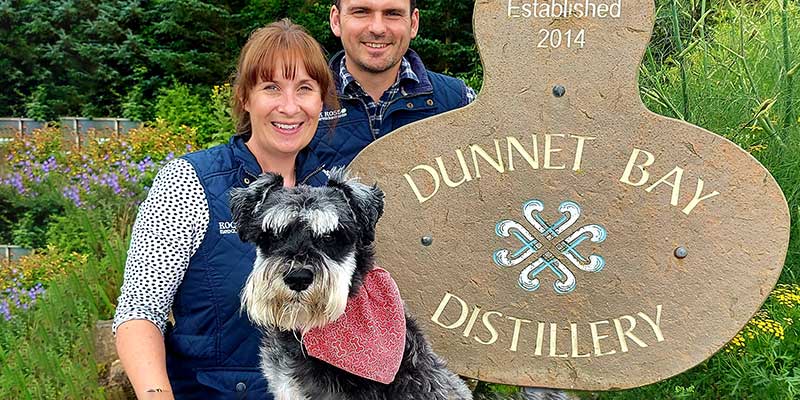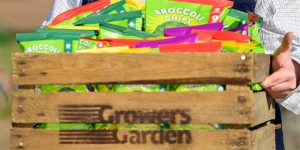Dunnet Bay Distillers has won a DigitalBoost Grant, funded with the support of the Scottish Government, to help them launch a new, low-carbon website halving the environmental impact of the site.
The Rock Rose Gin and Holy Grass Vodka makers estimated that the website would have created “around three tonnes of carbon last year alone”, generating between “2g and 6g of carbon per page load, per user”.
Co-Founder and Co-owner Martin Murray said: “We are currently assessing all aspects of the business to try and make it as sustainable as possible. Last year we appointed a dedicated Environment Manager to help us improve still further.
“We are determined to improve that. We are so grateful for the DigitalBoost Grant which enables us to make that improvement.”
During the Covid pandemic, with the hospitality trade closed, web-site sales became even more important to the company. In 2021 the company had its best year ever, and much of this was attributable to continuing web sales.
Murray added: “Whilst we want to continue to see an increase in the number of customers visiting our website, we are keen to mitigate the environmental impact.
“It’s our intention to use the existing successful designs, but to alter the behind-the-scenes operations to use fewer resources and optimise operations.”
Following the revamp, the carbon impact of the site will be halved, while also loading more quickly on all devices to give a better user experience for customers and staff.
The grant covers half the total cost of the website redevelopment which will be handled by Naomi Spirit at ‘From This Day’ – www.fromthisday.digital – the company’s existing web-master.
The company has also assessed its environmental impact on several other aspects, including sustainable, fully recyclable packaging used for refill pouches; local sourcing and foraging of many botanicals; reuse and recycling of botanicals and other materials; minimising plastic usage and switching to other materials where possible; water protection; solar energy; and good citizenship, supporting local charities; and organising beach clean-ups.




